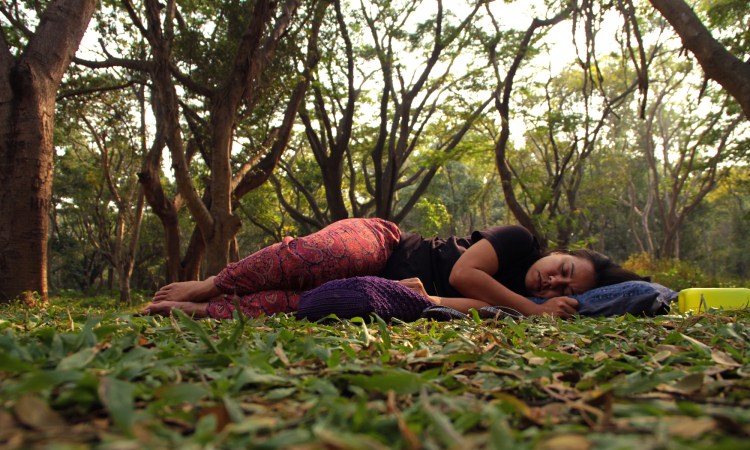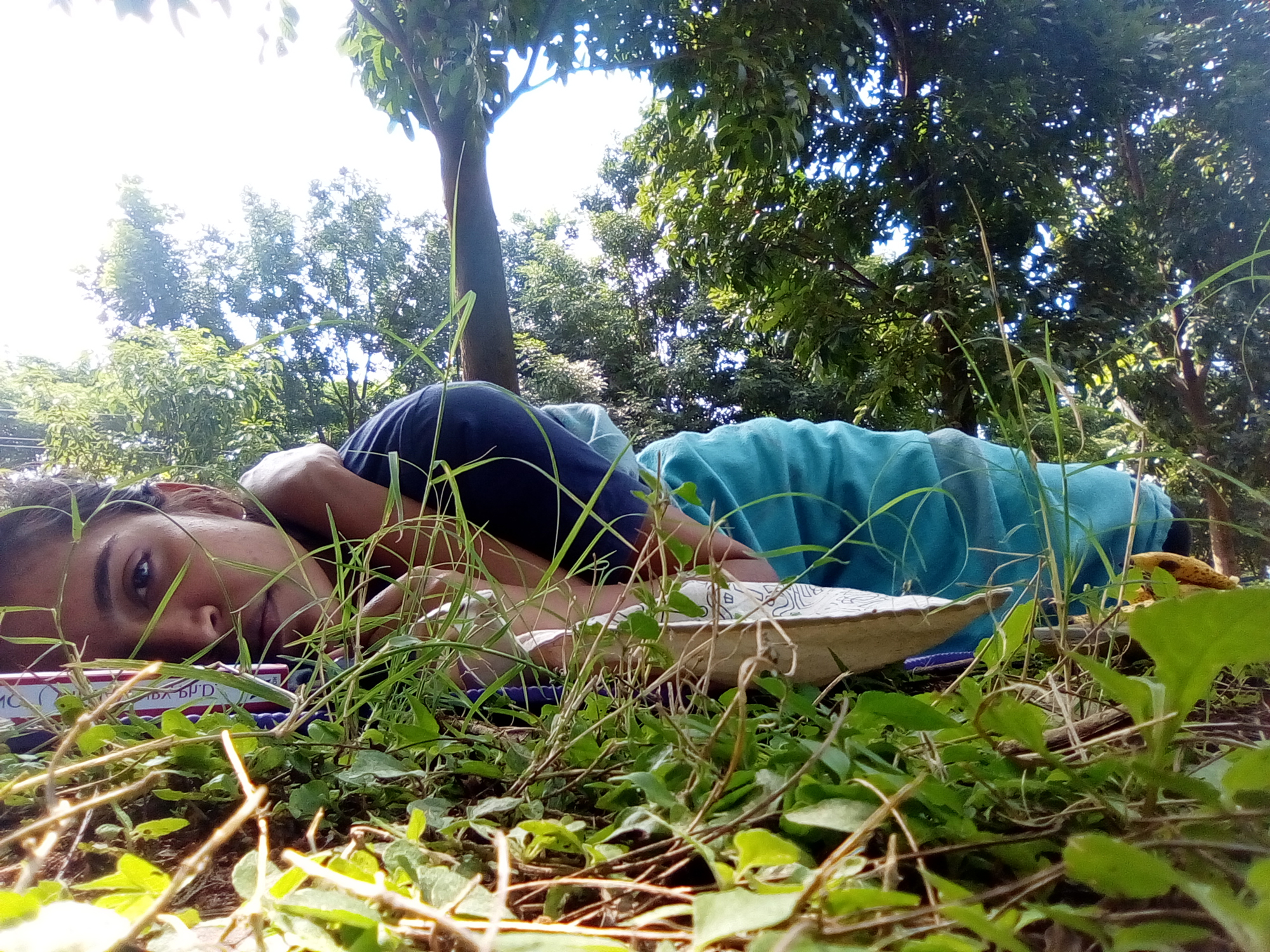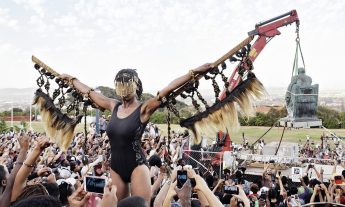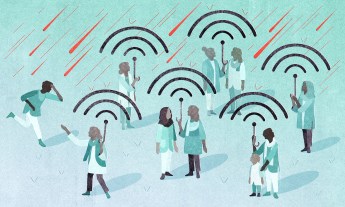
In an annual event called Meet to Sleep, women come together to doze in public spaces. These sleep-ins are all about rejecting a culture of fear and harassment and creating one of trust and shared safety, says artist and activist Jasmeen Patheja.
For many women, safety in public spaces is not a given. Whether we’re conscious of it or not, whether we like it or not, our personal security affects our movements and our choices — what streets we feel comfortable walking down, where we sit or stand on a bus, how late we’ll go for a run in the park.
But what would it take for all women to experience safety in public, no matter the time or place? How would it feel to — finally — be able to turn off our internal “Am I safe?” meter?
These are questions that artist and activist Jasmeen Patheja is trying to investigate through Blank Noise, a nonprofit that challenges the idea that women must bear the burden of ensuring their own safety in public. In an annual event called “Meet to Sleep,” women come together to take naps in public parks. The next sleep-in takes place December 16 across India.
Patheja, a TED Fellow, grew up in Kolkata and moved to Bangalore to attend college. While she enjoyed freedom away from her family as a 19-year-old in a new city, she also met with frequent and unexpected assaults in public. “Over the course of four years, I was groped, spat on, flashed and stalked by different men,” she says. What made it worse were her friends’ responses: “They said things like, ‘It happens’ or ‘Boys are like this.’”
She realized this harassment was the norm among her peers. “For too long, women and girls in India have been raised to live around sexual violence, making everyday decisions rooted in feeling unsafe, invisible. Instead of asserting our right to wander alone, we are asked to curtail our own freedom in order to guarantee our own safety. I began noticing how my women friends accepted this hidden reality in their everyday decisions: they rarely went out alone — only in big groups. Or they had a boyfriend they could go out with.”
Tired and frustrated by the constant policing of their movements that she and other women had to do, Patheja formed Blank Noise in 2003. It tries to use art to transform a culture that tolerates sexual misconduct into a culture of safety and trust. Blank Noise’s public actions and interventions are intended to catalyze conversation about harassment and violence. For example, the “I Never Ask For It” project invites women to bring in a garment they wore when they experienced violence, abuse or misogyny. Thousands of garments — from novelty T-shirts to floor-length caftans — are being compiled for an exhibit.
Meet to Sleep was born when Patheja felt the urge to take a nap outside but realized she was afraid to do so. To confront her fears, she took a blanket and pillow to a park in Bangalore, placed them under a tree, and lay down. Her inaugural nap was not peaceful. “Each time I would almost fall asleep, I’d wake up to a sound, realizing it was just a leaf or a dog passing by,” she recalls. “It made me think about fear and how each of us is warned against each other and told to be careful.”
But is napping in a park such a radical act? There’s no more vulnerable state for a person than sleep, Patheja says, which makes the act of sleeping in public a bold demonstration of public safety and trust. “In India, men sleeping in public parks is a usual sight,” she says. “The idle man on the streets, by tea stalls — these are normal.” Women are never seen napping in public, with one exception: homeless women.
Patheja left that first nap inspired to go bigger. “That day, I lay on my blanket, dreaming up hundreds and thousands of women falling asleep in public parks,” she recalls. The first Meet to Sleep took place in Bangalore in 2014. “We did several small-scale actions between 2014 and 2015, in Mumbai, Pune, Jodhpur and Hyderabad,” she says. “In those early days, some participants did other things they’d always wanted to do but were too afraid — such as have a snack alone on a bench or read under a tree.”

Today, Meet to Sleep takes place simultaneously across many cities. Patheja calls out any naysayers who say that the sleep-ins are an open provocation to would-be harassers. “We assert our right to be defenseless,” she says. “We do this because there is no such thing as ‘asking for it.’” The most recent Meet to Sleep in 2017 occurred in parks in 12 towns and cities in India, with the numbers of napping women per park ranging from one to 50.
Participants register on Blank Noise’s website before Meet to Sleep, and the event lasts three hours: the first two-and a-half hours are spent napping in groups in the park, and the last half-hour is for women to share their experiences. “The group speaks about falling asleep and how they slept. Were they in proximity with each other? Did they sleep on their backs? Curled up? Could they sleep at all? What does that say about our relationship with fear?” says Patheja.
Each participant documents her feelings and epiphanies in writing, photographs and video. “The experience is different for each individual,” says Patheja. “Most participants report confronting their fear and coming away with an insight into their relationship to it. Some wonder, ‘What stopped me from sleeping under a tree all my life?’ We also draw attention to the fact that many of us were strangers to each other before we co-created the action, so we realize our potential to become each other’s safe space.”
Meet to Sleep is about the bystanders, too. Patheja wants the people who witness the sleepers to be moved to examine their own attitudes about women, how secure they should feel in public, and who should be responsible for their safety. Thinking about these issues can start to shift assumptions about women and harassment.
On December 16, the next Meet to Sleep will happen in parks in Bangalore, Bidar, Agona, Panjim, Patiala, Baroda, Kolkata, Kochi, Kerala and New Delhi. December 16 is also the sixth anniversary of the gang rape and murder of student Jyoti Singh on a bus in South Delhi. The incident gained international attention and marked a turning point in India’s consciousness of rape culture. “We will sleep remembering her, and all those who have said #MeToo and #NiUnaMenos, and those whose stories are yet to be told,” says Patheja. From now on, Blank Noise plans to hold a Meet to Sleep every December 16 in Singh’s memory.
Just as safety in public is a concern for women all over the world, Patheja would like Meet to Sleep to become a global movement. She invites anyone, anywhere who is interested to register at their site and take a nap at their local park. Her dream is to someday make napping in public a non-event for women. She says, “I’d feel Meet to Sleep was successful if it were to be normal to find women sleeping defenseless in public parks, with our presence affirming our trust, belonging and pride.”
Watch her TED talk here:











